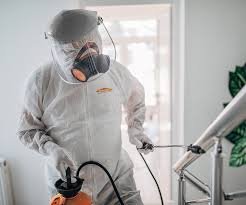Biohazard cleaning services are an essential aspect of public health and safety, providing crucial assistance in situations where standard cleaning methods are insufficient. These services are necessary in a variety of scenarios, including crime scenes, accidents, unattended deaths, and industrial accidents. The expertise and professionalism of biohazard cleaners ensure that contaminated environments are restored to safe, habitable conditions, protecting both current and future occupants from potential health risks.
Understanding Biohazard Cleaning
Biohazard cleaning involves the safe removal, disposal, and disinfection of materials that pose a risk to human health. This can include blood, bodily fluids, chemical spills, and other potentially infectious materials. The process is highly regulated and requires specialized knowledge and equipment to handle safely and effectively.
When Are Biohazard Cleaning Services Needed?
Biohazard cleaning services are required in a range of situations, each presenting unique challenges and risks:
- Crime Scenes: Crime scenes often contain biological contaminants that need professional cleaning. This includes blood and other bodily fluids, which can harbor pathogens like HIV, hepatitis, and other infectious diseases.
- Unattended Deaths: When a person dies and their body is not discovered for some time, decomposition can result in the release of harmful bacteria and other pathogens. Professional biohazard cleaners are trained to handle these situations with sensitivity and thoroughness.
- Industrial Accidents: Spills of hazardous chemicals or other industrial accidents require specialized cleaning to ensure that all contaminants are safely removed and the area is thoroughly decontaminated.
- Hoarding Situations: In severe hoarding cases, there can be significant biohazard risks, including mold, bacteria, and pest infestations. Biohazard cleaners help to restore these environments to safe living conditions.
The Biohazard Cleaning Process
The biohazard cleaning process is meticulous and involves several critical steps to ensure complete decontamination:
- Assessment and Planning: The first step is a comprehensive assessment of the contaminated area. This involves identifying the types of biohazards present and planning the appropriate cleaning methods and protective measures.
- Containment: To prevent the spread of contaminants, the affected area is contained. This may involve sealing off rooms or using specialized equipment to create negative air pressure environments.
- Removal of Contaminants: All biohazardous materials are carefully removed. This includes physical debris, as well as the cleaning of surfaces to remove all traces of contaminants. Special attention is given to areas that may harbor hidden pathogens.
- Disinfection and Decontamination: The area is then disinfected using hospital-grade cleaning agents and advanced techniques such as steam cleaning or UV light. This step ensures that all pathogens are eliminated.
- Safe Disposal: All biohazardous materials are disposed of according to local, state, and federal regulations. This often involves using specialized containers and following strict protocols to ensure safety.
- Final Inspection: A thorough inspection is conducted to ensure that the area is completely decontaminated and safe for use. This may involve testing surfaces for the presence of contaminants.
Health and Safety Protocols
Biohazard cleaning services adhere to stringent health and safety protocols to protect both the cleaners and the public. This includes the use of personal protective equipment (PPE) such as gloves, masks, and full-body suits. Cleaners are trained in proper handling and disposal techniques to minimize exposure to hazardous materials.
The Expertise of Professional Biohazard Cleaners
Professional biohazard cleaners bring a wealth of knowledge and experience to their work. They are trained in the latest cleaning techniques and are familiar with the regulations governing biohazard cleanup. Their expertise ensures that even the most challenging situations are handled safely and effectively.
The Emotional Aspect of Biohazard Cleaning
Biohazard cleaning often involves working in environments that are emotionally charged and distressing. Professional cleaners approach these situations with sensitivity and respect, understanding the impact on those affected. Their goal is to provide not only thorough cleaning but also peace of mind for clients during difficult times.
Choosing a Biohazard Cleaning Services
Selecting the right biohazard cleaning service is crucial for ensuring a safe and thorough cleanup. Key factors to consider include:
- Certification and Training: Ensure that the company is certified and that its cleaners are properly trained in biohazard remediation techniques.
- Experience: Look for a company with a proven track record in handling similar situations. Experience is invaluable in managing the complexities of biohazard cleanup.
- Response Time: Quick response is essential in minimizing further contamination and damage. Choose a company known for its prompt and efficient service.
- Compassion and Professionalism: The best biohazard cleaning companies combine technical expertise with a compassionate approach, providing support and reassurance to clients during challenging times.
Biohazard cleaning services play a vital role in maintaining public health and safety. Whether dealing with crime scenes, unattended deaths, industrial accidents, or hoarding situations, professional biohazard cleaners ensure that contaminated environments are restored to safe, habitable conditions. Their expertise, adherence to stringent safety protocols, and compassionate approach make them indispensable in handling the aftermath of traumatic events. By choosing a reputable biohazard cleaning services, you can trust that your environment will be thoroughly decontaminated, providing peace of mind and a safe space for all.

